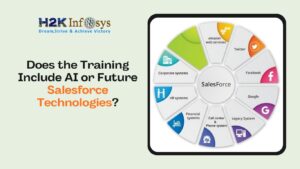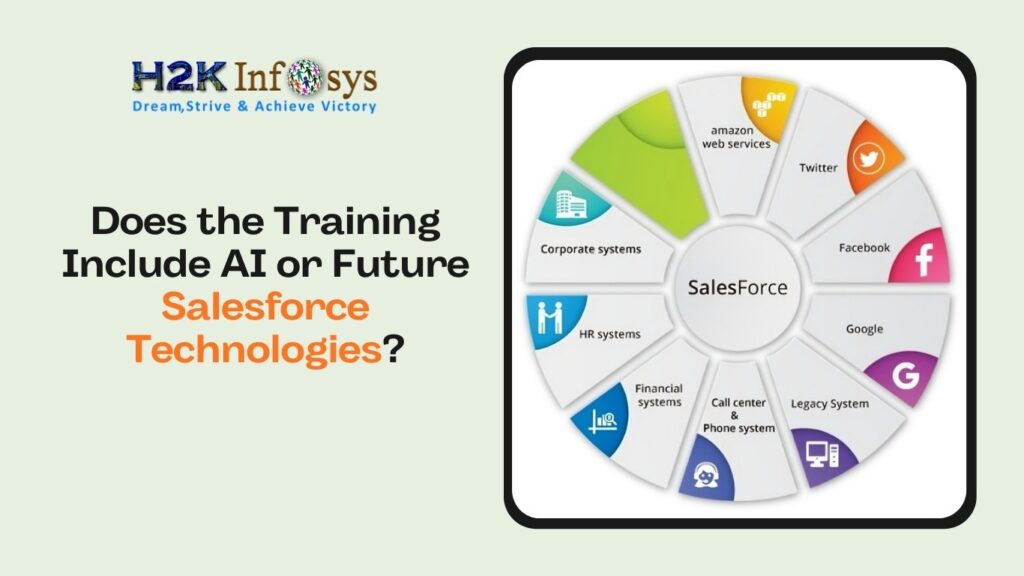Introduction: Why DevOps is Reshaping IT Careers
In today’s fast-moving tech world, speed and reliability are critical. Businesses want to release better software faster, and that’s where DevOps steps in. DevOps is more than just a buzzword. It’s a set of practices and tools that bring together development and operations teams to build, test, and deploy software faster and more efficiently.
For beginners, diving into DevOps might seem overwhelming. But the truth is, with the right DevOps training online, you can quickly master the DevOps tools and practices that companies are hiring for right now. Whether you’re a recent graduate or an IT professional looking to upskill, understanding DevOps tools and practices can be your gateway to high-paying roles and long-term career growth.
What is DevOps?
DevOps combines Development (Dev) and Operations (Ops) to break down silos in the software lifecycle. It encourages collaboration, automation, and monitoring to streamline software delivery.
Key DevOps Goals:
- Faster Time-to-Market: Deliver updates and new features quickly.
- Improved Collaboration: Developers and operations work together.
- Automation: Reduces manual work and errors.
- Continuous Improvement: Feedback loops ensure better outcomes over time.
DevOps isn’t a tool or software. It’s a mindset and culture supported by DevOps tools and practices that help automate and improve the software lifecycle.
Why Learn DevOps as a Beginner?
High Demand & Job Security
According to recent industry surveys, companies adopting DevOps report:
- 60% faster software delivery
- 35% lower failure rates
- Better team satisfaction and collaboration
With more businesses adopting this model, there’s a rising demand for professionals with DevOps Training and knowledge of DevOps tools and practices.
Career Flexibility
DevOps roles span across:
- Cloud engineers
- Automation testers
- Site reliability engineers (SREs)
- DevOps engineers
A beginner-friendly DevOps online course helps build the foundation to enter these roles confidently with core DevOps tools and practices.
DevOps Lifecycle Explained
Understanding the DevOps lifecycle helps you know how DevOps tools and practices fit into the big picture. Here’s how it works:

- Plan: Teams collaborate on requirements and roadmap.
- Develop: Code is written and managed with version control.
- Build: Code is compiled, built, and tested automatically.
- Test: Automated testing ensures quality.
- Release: Code is released to production smoothly.
- Deploy: Deployment is done using tools like containers.
- Operate: Software is monitored in production.
- Monitor: Real-time feedback helps teams respond quickly.
Each of these stages uses specific DevOps automation tools to boost speed and efficiency.
Essential DevOps Tools for Beginners
Here are the must-learn tools aligned with DevOps tools and practices, organized by lifecycle stages:
1. Source Code Management (SCM)
- Purpose: Version control and collaboration
- Popular Tools: Git
- Use Case: Track code changes, collaborate with developers
2. Build Automation Tools
- Purpose: Compile code, build binaries
- Popular Tools: Maven, Gradle
- Use Case: Automate build process with minimal errors
3. Continuous Integration (CI) Tools
- Purpose: Automatically test and integrate code
- Popular Tools: Jenkins
- Use Case: Detect bugs early in the development cycle
4. Configuration Management Tools
- Purpose: Manage software configuration across systems
- Popular Tools: Ansible, Puppet, Chef
- Use Case: Automate infrastructure and ensure consistency
5. Containerization Tools
- Purpose: Package applications with their environment
- Popular Tools: Docker
- Use Case: Simplify deployment and scalability
6. Orchestration Tools
- Purpose: Manage containers at scale
- Popular Tools: Kubernetes
- Use Case: Automate container deployment, scaling, and management
7. Monitoring Tools
- Purpose: Track system performance and uptime
- Popular Tools: Prometheus, Nagios
- Use Case: Proactively detect issues and monitor application health
Learning these DevOps tools and practices helps beginners understand real-world workflows and prepare for job roles.
Core DevOps Practices You Must Know
To succeed in DevOps, understanding the following practices is essential:
1. Continuous Integration (CI)
- Developers integrate code frequently into a shared repository.
- Automated builds and tests run to catch errors early.
2. Continuous Delivery (CD)
- Code is automatically prepared for a production release.
- Manual approval can still be part of the process.
3. Infrastructure as Code (IaC)
- Infrastructure setup is defined using code.
- Makes environments consistent, repeatable, and scalable.
4. Monitoring and Logging
- Applications and infrastructure are continuously monitored.
- Logs provide insights into performance and help diagnose issues.
5. Automation Everywhere
- From code testing to deployment and monitoring, automation reduces errors and speeds up processes.
These practices are often introduced early in a DevOps training with placement program and reinforced with projects.
Real-World Example: How DevOps Works in a Company
Scenario: A retail company wants to release new features for its e-commerce website every week.
Without DevOps:
- Developers write code, but operations delay deployment.
- Manual testing is slow and error-prone.
- Bugs appear in production due to miscommunication.
With DevOps:
- Developers push code to Git.
- Jenkins triggers an automated test and build.
- Docker containers package the app.
- Kubernetes deploys it automatically.
- Monitoring tools track performance.
Result: Weekly releases happen on time, bugs are detected early, and the team works better together.
How DevOps Training Online Helps You Master These Skills
1. Structured Learning Path
- Covers foundational DevOps tools and practices step by step
- Step-by-step modules teach you core tools and practices.
- Real-world projects let you apply what you learn.
2. Hands-On Labs and Assignments
- Apply DevOps tools and practices in real environments
- Practice with real environments.
- Build pipelines, automate tasks, and deploy apps as you go.
3. Mentorship and Guidance
- Expert instructors guide you through tough concepts.
- Doubts are cleared quickly to maintain learning momentum.
4. DevOps Training with Placement Support
- Resume preparation and mock interviews.
- Access to job openings and hiring partners.
5. Certifications
- Boost your resume with proof of your DevOps skills.
- Prepares you for industry-recognized credentials.
With the best DevOps training online, even beginners can land interviews within months.
DevOps Career Paths After Training
Once you complete a DevOps course online, here are some job roles you can pursue:
| Job Role | Average Salary (USA) | Skill Focus |
|---|---|---|
| DevOps Engineer | $110,000+ | CI/CD, Docker, Kubernetes |
| Site Reliability Engineer | $120,000+ | Monitoring, Automation |
| Release Engineer | $95,000+ | Deployment, Version Control |
| Automation Test Engineer | $90,000+ | Test Automation, CI tools |
| Build & Release Manager | $105,000+ | Build tools, CI/CD pipelines |
These roles often come with remote opportunities and long-term growth potential.
Getting Started: Step-by-Step DevOps Beginner Plan
Here’s a roadmap for beginners to get started:
Step 1: Understand the Basics
- Learn what DevOps is and how it helps organizations.
- Focus on the DevOps lifecycle.
Step 2: Master Version Control
- Get hands-on with Git.
- Use platforms to push, pull, and manage branches.
Step 3: Learn CI/CD Fundamentals
- Set up Jenkins and build a pipeline.
- Integrate automated testing.
Step 4: Explore Containers and Orchestration
- Install Docker and build containerized apps.
- Use Kubernetes for deployment.
Step 5: Dive into Infrastructure Automation
- Write simple Ansible playbooks.
- Automate server configuration.
Step 6: Monitor and Troubleshoot
- Use tools like Prometheus and Grafana for alerts.
- Practice responding to real-time issues.
A good DevOps bootcamp online guides you through this journey with assignments and projects.
Key Takeaways
- DevOps bridges the gap between development and operations, making software delivery faster and more reliable.
- Mastering DevOps tools and practices is critical for tech career growth.
- Learning DevOps tools like Git, Jenkins, Docker, and Kubernetes is essential for success.
- A structured DevOps training online program helps you build real-world skills.
- With demand rising, DevOps training and placement support can launch your career in weeks.
- Beginners can follow a clear roadmap, gain certification, and start applying for high-paying tech roles.
Conclusion
DevOps isn’t just for experienced tech professionals, it’s for anyone ready to embrace change. With the right DevOps tools and practices, training, and mentorship, you can build a rewarding career in IT.
Ready to learn from experts? Enroll now at H2K Infosys for hands-on DevOps training and guaranteed placement support using proven DevOps tools and practices.


























